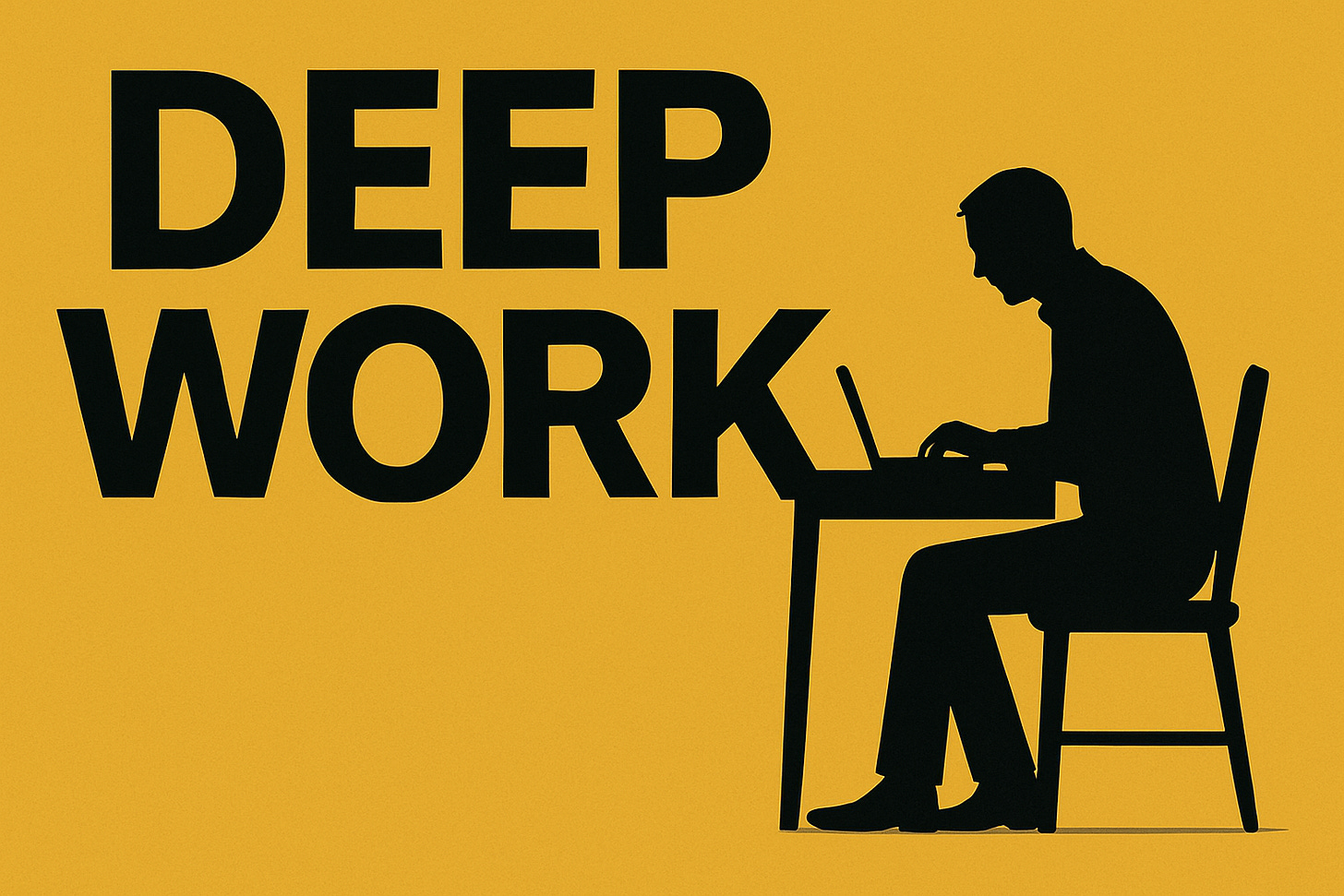Why Deep Work Might Be the Most Important Skill You’re Not Practicing
Cal Newport, 2016
I like getting things done, focusing on the work at hand, and checking the boxes. However, in a world flooded by notifications, impatient collogues, multitasking, and dopamine-driven refreshes, this is not always easy. Cal Newport’s Deep Work offers a quiet rebellion that calls for depth over distraction, focus over frenzy.
At its core, the book delivers a bold thesis: The ability to focus without distraction on cognitively demanding tasks is becoming increasingly rare — and increasingly valuable. Newport calls this skill “deep work,” and argues that cultivating it is like acquiring a superpower in the modern knowledge economy.
He contrasts it with “shallow work”—those logistical, often urgent but low-value tasks that fill up your day and give the illusion of productivity. Inbox zero, Slack replies, Zoom calls, meetings - the kind of work that’s easy to replicate and unlikely to move the needle.
Four Rules for Deep Work
The book is filled with practical hacks, but Newport also makes a philosophical argument. Our best thinking, learning, and creative output requires sustained, undistracted time. This isn’t a nostalgic yearning for a pre-digital age; it’s a survival strategy for anyone who wants to do meaningful, high-impact work in a distracted age.
The book is structured around four “rules” for cultivating deep work:
Work Deeply – Build rituals, routines, and environments that protect focus.
Embrace Boredom – Train your brain to resist novelty and tolerate the absence of stimuli.
Quit Social Media—Be ruthless about what tools you use; only keep them if they clearly serve your goals. If not quitting, at least block their use for large chunks of the day.
Drain the Shallows – Minimize low-value obligations and aggressively schedule time for depth.
Each rule is practical, evidence-based, and sometimes uncomfortably challenging. (No, you probably don’t need X “for networking.”)
The Case for Depth (and not)
A point should be made that this kind of relation to work is not for everyone and not for every occasion.
During my time in politics, multitasking was necessary. The workload requires quick switching from one task to another, always being reachable, touching on many subjects shallowly, and turning to specialists when depth is needed. I had days when I retreated into isolation to think, but most days left little room for deep work.
When going back to university, it was clear that some things had to change. The purpose was different. I was no longer responsible for others; I didn’t have to act on every piece of news, and it was no longer my job to fix the world. My focus was now on learning sometimes difficult things. I found that discussing problems with friends is a precious gift, but the concept of deep work also made me understand the need for concentrated isolation and being content with boredom. Thinking - the kind that matters - can’t be rushed. It needs space. Silence. Protection.
Final Thought
Reading Deep Work won’t make you immune to distraction, but it might change how you value your attention. Sometimes, I structure a lot of my time around the concept of deep work—sometimes not*. There is no need to become a monk, but one should be more intentional, building boundaries around one's best thinking. In a culture that rewards responsiveness over reflection, that might be the most radical act of all.
* Try to do a Ph.D. in computer science without a connected computer.
More
Cal Newport has written many books. I might revisit some of the others. However, visit his website to explore his work, books, podcasts, and research.



A very valuable read for someone who has re-entered politics. I will apply the rules where possible and put rule 4b first: aggressively scheduling time for depth. In this context, it is about booking one and two days away from other commitments.